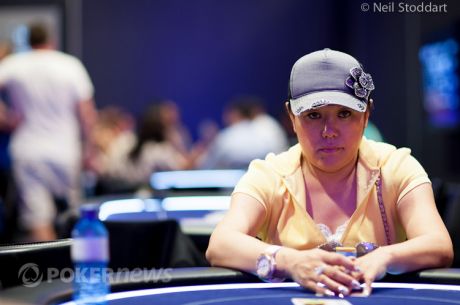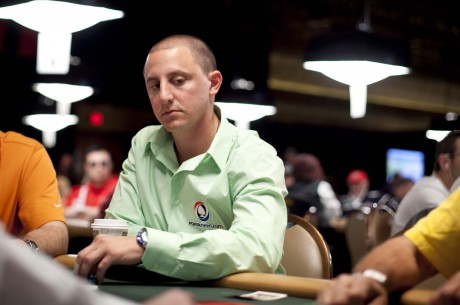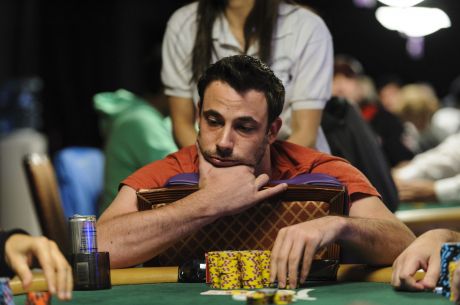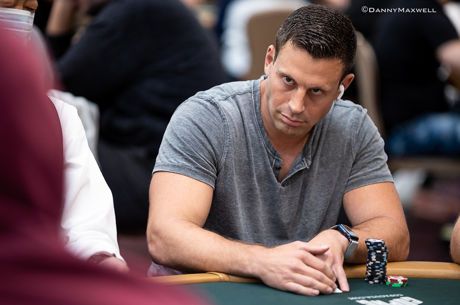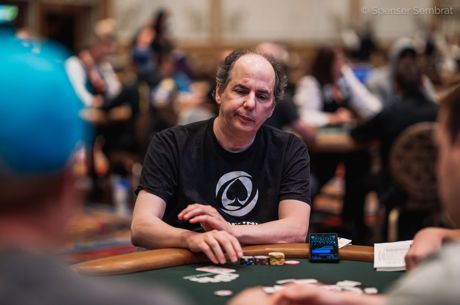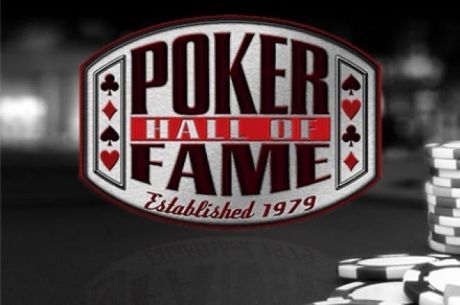Breaking Down the Legality of Cheung Yin Sun's Edge-Sorting Lawsuit Against Foxwoods

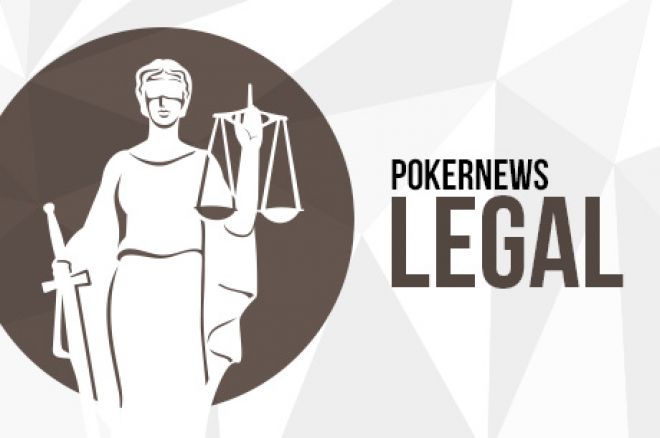
PokerNews contributor and East Coast-based attorney Maurice “Mac” VerStandig is an expert on the American gaming scene. Well-versed in casino management from common issues of fraud and theft prevention to the Unlawful Internet Gambling Enforcement Act and Indian Gaming Regulatory Act, VerStandig has a strong background in bankruptcy work and is also skilled in the strategic valuation and monetizing of complex assets. He applies that knowledge to all areas of his practice, from fraud recoveries to traditional insolvency proceedings. Here, VerStandig takes a look at Cheung Yin Sun's lawsuit against Foxwoods Casino and offers his opinion on its chances of success.

Cheung Yin Sun, the Nevada-based card maven recently noted for her trips to Atlantic City’s Borgata with Phil Ivey, is once again in the news for taking down a prominent East Coast casino via her strategic manipulation of mini baccarat. This time the gaming parlor is Foxwoods, the fabled Connecticut establishment that revolutionized Indian gaming with its conversion from a bingo hall to an epically-portioned slot and table game saloon in the early 1990s. And while Ms. Sun’s so-called “edge sorting” play may weave a common thread through her cameos in the headlines, the Native American soil upon which this case finds its origins offers forth a far more complex set of legal and practical issues.
For those not otherwise familiar with edge sorting, care of Ms. Sun’s rendezvous with the Borgata or London’s famed Crockfords alongside Mr. Ivey, the ploy centers on the exploitation of playing cards that are cut asymmetrically. Whereas most casino decks have uniform backs - often with white borders to boisterously emphasize that uniformity - certain cards with patterns that bleed all the way to the edge are manufactured such that one side of the pattern is more pronounced than the other. Specifically, the cut will show a greater portion of a truncated pattern on one side relative to the other; and while surely the variety of nuance best illustrated with a photo and a magnifying glass, suffice it to proffer that this inconsistency allows cards to be distinguished by the keenest of eyes, when rotated from one side to another. Hence the moniker “edge sorting.”
In the game of mini baccarat, this playing card flaw can be strategically exploited by a player who induces the house to rotate certain cards - specifically, 6s, 7s, 8s, and 9s - so that they become distinguishable from the rest of the deck. With knowledge of whether the first card out of a hand is one of these key members of the deck, a player can gain a 6% advantage over the casino hosting a given game; with knowledge of the first four cards out of a shoe, that advantage nears 21%. And, as one might well suspect, Ms. Sun appears to be a player with a sufficiently keen eye to exploit these advantages.
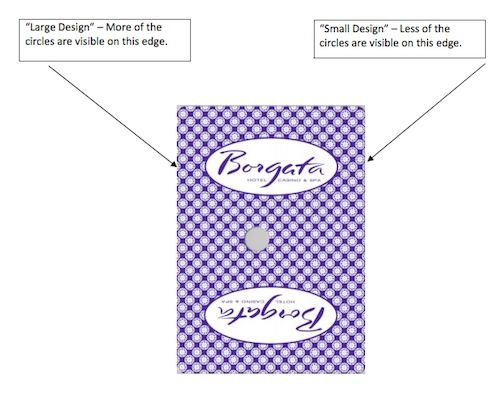
The key, of course, to gaining this advantage is convincing a casino to rotate those critical cards. And therein lies the sort of deceptive slight that has landed Ms. Sun in litigation with the Borgata and now Foxwoods. Some reference to luck - that amorphously bizarre concept that leads even the most dapper of gamblers to shout in tongues at times - is employed to make the rotation of these key cards appear innocuous, and an automatic shuffler is then used to ensure these cards stay properly rotated, since machinery of the like only alters the order - not the rotation - of a given multi-deck shoe.
At some point, however, gaming establishments necessarily grow wise to the reality that such luck is likely more feigned than genuine. For the Borgata, this threshold came just shy of the $10 million mark, once Mr. Ivey and Ms. Sun had cashed out; for Foxwoods, it apparently came just north of the $1.1 million mark, while Ms. Sun was still very much holding chips. Suddenly Ms. Sun and her two colleagues ceased to be honored high rolling guests and instead assumed the haunting identity of virtual prisoners in hotel rooms, having their chips withheld, their lines of credit frozen, and their doors pounded on by the likes of local law enforcement, the suit alleges.
This is perhaps an appropriate juncture to note that the words “Indian casino” are to gaming lawyers what “signed confession” are to criminal defense attorneys. Few areas of the law are as thinly documented, rife with unsettled constitutional oddities, and maddeningly Kafkaesque as those governing activities on Native American reservations. Various efforts to right the most dastardly of historic wrongs, to preserve rapidly waning heritages, and to honor fleeting notions of sovereignty, have cumulatively produced oft-tattered and irreconcilable legal regimes. It is clear that an individual’s rights and privileges are fundamentally altered when she or he departs the neatly-defined soils of Connecticut and steps foot on the Mashantucket Pequot reservation; it is not nearly clear, however, what that alteration presupposes for an aggrieved bettor.
Ms. Sun’s lawsuit alleges, and its exhibits seem to support, that she was confronted by a Connecticut state officer, at the behest of Foxwoods; that she then executed an “agreement” whereby her initial stake was returned in exchange for her submitting the dispute over her putative winnings to the exclusive jurisdiction of a tribal court; that Foxwoods charged her with not merely edge sorting but also with carrying the scheme to an extreme where she was essentially past-posting wagers; that the tribal court found this distinction sufficient to deny Ms. Sun her playing chips without expressly having to construe whether or not her mere edge sorting was civilly actionably; and that the same court fondly and proudly stood upon the non-appealable nature of its determinative opinion. The foregoing bears processing, if only for its insurmountable underlying oddity: a court operated by the same tribe that runs Foxwoods adjudicated Ms. Sun’s dispute with Foxwoods in favor of Foxwoods. Lewis Carroll would surely be proud.

Marvin Vining, an attorney noted for his representation of “advantage play” bettors in suits the nationwide, is representing Ms. Sun in a creatively postured suit against Foxwoods, various members of its management, various members of the tribal gaming commission, and that Connecticut state public safety officer who somehow ventured into the middle of a dispute on a Native American reservation. And, by way of necessary disclosure, the universe of lawyers handling player-side gaming cases is sufficiently claustrophobic that Mr. Vining is someone whom I know both personally and professionally; though, this is not a matter in which I have played any role, nor is this a case in the outcome of which I am a stakeholder.
The case being advanced by Mr. Vining fundamentally rests on three key propositions: First, that a Native American tribe and its membership may face civil suit, in a federal court, for violation of an outsider’s civil rights; second, that Ms. Sun’s “agreement” whereby she submitted to the jurisdiction of a tribal court, is voided by the duress to which she was allegedly contemporaneously exposed; and, third, that on the merits, Ms. Sun is owed her putative winnings. The second point is perhaps the lone simplistic aspect of this matter - it is well settled that contracts executed under duress are little more than prima facie evidence of wrongdoing on the part of the entity inducing such duress. The first point and the third point, by contrast, are significantly trickier.
As a threshold matter, Native American reservations are sovereign places, partially outside the legal systems of the states in which they reside. The lands underlying these reservations are most often actually owned by the United States or a particular state, but are held in trust for the correlative tribe and treated as the de facto property of the tribes themselves. A 1953 legislative enactment known as Public Law 83-280 shifted control over various aspects of Native American legal affairs to state courts; however, Connecticut was not one of the states enumerated in this historic law, and much of the law’s purpose has been since mooted by a trend toward giving back to tribes the near-full control over their affairs, legal and otherwise, especially in the field of gaming.
One point that has never been cleanly resolved, however, is whether Native American tribes are subject to federal civil rights laws. And this matters a great deal inasmuch as Ms. Sun has couched her claims as violations of her various civil rights. The lawsuit takes great steps to note that a longstanding assumption of Native American immunity to such litigation is founded upon a passing, non-binding comment in a Supreme Court case that did not genuinely answer the underlying question. Mr. Vining seizes upon a currently-pending suit known as Pistis v. Garcia, where a trial court found various employees of a Native American casino, as well as the Arizona state police, did in fact violate a patron’s civil rights in an advantage play case.
Still, even this strategy is rife with the potential for failure by way of compromise. It strikes as most likely that a court will have little trouble holding the individual members of the Foxwoods operation, the Mashantucket Pequot gaming tribunal membership, and the state law enforcement officer, liable for any civil rights violations that can be proven. But civil suits such as this are inherently about collecting money, and if a court elects to hold only the individuals - and not the actual casino or tribal group - liable, Ms. Sun may be hard-pressed to collect on her judgment unless one of these individual defendants is independently wealthy.
As for the edge sorting itself, this case falls neatly into the same line of discussion that has become pervasive in light of the Borgata suit, which I have previously analyzed in appreciable length on this site. Though a close call, it does seem edge sorting to be permissible within the confines of most gaming regulatory schemes; casinos alter their protocols to accommodate high rollers at their own risk.
Here, Ms. Sun’s suit suggests, that risk may actually have been rather well known. Indeed, attached to the complaint are various articles noting that a group of Asian players have been utilizing this particular line of trickery to exploit casinos with vulnerable playing cards. Each of these articles was published before Ms. Sun set foot in Foxwoods, and each of these articles ought to have crossed the radar of any competent gaming security director. Perhaps most ironically, as the lawsuit itself notes with a gleeful modicum of pride, “The Asian players mentioned in these reports are none other than the plaintiffs themselves!”

And these reports are not merely cautionary tales of ills that have befallen sister gaming establishments; they note how schemes such as this can be avoided. The key measure, which every gambling parlor in America ought to appreciate at this juncture, is requiring dealers to “wash” cards before placing them in an automatic shuffler; this ensures any sorted edges are scrambled before being reinserted into a shoe, and preserves the house advantage. For Foxwoods to have not been utilizing this practice, notwithstanding literature suggesting it do so, is either negligent or nefarious.
On that note, the suit does suggest an interesting, if not seemingly whimsical, theory: perhaps Foxwoods knew exactly what Ms. Sun was up to, and elected to “freeroll” her play. Had the casino known of the scheme at the outset, it would have realized it could withhold any winnings - especially with the aid of a friendly tribal court - and that if luck ran against Ms. Sun’s edge and she was a loser, Foxwoods would have had no trouble keeping its respective winnings. Whether or not the facts support this allegation remains to be seen; it does strike as amongst the most abrasive of suggestions in the suit, but few other theories competently explain these events in any light other than one that shines the glare of gross negligence upon one of America’s most revered gaming parlors.
Finally, one other idiosyncratic aspect of the suit warrants mention: in an effort to preempt the sovereign immunity issues discussed above, Mr. Vining suggests the Mashantucket Pequot tribe is not sovereign at all because it is, in fact, not a tribe at all. Relying heavily on a book by Jack Benedict entitled Without Reservation: The Making of America’s Most Powerful Indian Tribe and Foxwoods the World’s Largest Casino, the suit theorizes the entire construction of the betting house was a fraud “wrought upon the people of Connecticut and the U.S. Congress.” Not nearly enough is alleged of this claim to discuss here its relative strengths or shortcomings, but it certainly strikes as both sensational and fascinating. Certain legal theories known as laches and estoppel periodically serve to uproot challenges to those facts the government has long held legally sacrosanct, regardless of their underlying fault; whether or not these theories would be applicable to the errant recognition of a Native American reservation is yet to be seen.
In the interim, however, Ms. Sun has certainly given the Mashantucket Pequot tribe plenty of other issues to confront.
*Views expressed in this article are those of the author and not necessarily of PokerNews.
Maurice “Mac” VerStandig, Esq. is the managing partner of The VerStandig Law Firm, LLC, where he focusses his practice on counseling professional poker players, sports bettors and advantage players across the United States. He is licensed to practice law in Maryland, Virginia and Florida, as well as in nearly a dozen federal courts, and regularly affiliates with attorneys licensed in numerous other states and jurisdictions. He can be reached at [email protected].
Get all the latest PokerNews updates on your social media outlets. Follow us on Twitter and find us on both Facebook and Google+!

In this Series
- 1 Ivey Claims He Used "Edge Sorting" in £7.8 Million Lawsuit With Crockfords
- 2 Top 10 Stories of 2013: #10, Ivey, Kagawa, Smith, and Others Face Legal Trouble
- 3 Borgata Files $9.6 Million Lawsuit Against Phil Ivey for Alleged Baccarat Cheating
- 4 Details Emerge in Borgata's Lawsuit Against Phil Ivey
- 5 Sorting Out the Law Behind Phil Ivey's Edge Sorting Debacle at Borgata
- 6 Phil Ivey Files Motion to Dismiss Borgata Lawsuit, Claims Win Was "All Skill"
- 7 Ivey's Edge-Sorting Accomplice, Cheng Yin Sun, Files Lawsuit Against Foxwoods
- 8 Breaking Down the Legality of Cheung Yin Sun's Edge-Sorting Lawsuit Against Foxwoods
- 9 Phil Ivey to Discuss "Edge Sorting" Lawsuits on 60 Minutes
- 10 Phil Ivey Loses £7.7 Million "Edge Sorting" Court Battle Against Crockfords Casino
- 11 Phil Ivey Appeals Against Crockford’s Ruling
- 12 Top 10 Stories of 2014: #2, Phil Ivey Endures More Legal Drama
- 13 Judge Rules Borgata Lawsuit Against Phil Ivey Can Proceed
- 14 Phil Ivey Appears in Car Commercial for 2015 Chrysler 300
- 15 Foxwoods Survives Edge Sorting Lawsuit from Phil Ivey's "Queen of Sorts" Accomplice
- 16 Phil Ivey Files Countersuit Against Borgata Regarding $9.6M in Baccarat Winnings
- 17 Highlights from Ivey/Borgata Deposition: Booze, Pretty Cocktail Waitresses and More
- 18 Borgata Contests Phil Ivey Counter-Claims
- 19 Ivey Granted Permission to Appeal £7.8 Million Edge-Sorting Case Against Crockfords
- 20 Phil Ivey's £7.8 Million Appeal in Crockfords Case Began Yesterday
- 21 Court Opinion Split on Phil Ivey's $9.6M Baccarat Win
- 22 Phil Ivey Contests Borgata Request for His Baccarat Winnings
- 23 Court Orders Phil Ivey to Return $10.1M to Borgata
- 24 The Mysterious Year for Phil Ivey
- 25 Poker Pro Phil Ivey Will Try to Appeal Borgata $10M Ruling
- 26 UK Supreme Court Grants Phil Ivey Permission to Appeal Crockfords Case
- 27 Phil Ivey Loses £7.7M Supreme Court Appeal in London Edge Sorting Case
- 28 Top 10 Stories of 2017, #7: Phil Ivey Loses $19 Million in Court Battles
- 29 Gemaco Playing Cards Off the Hook in Borgata Ivey Edge-Sorting Debacle
- 30 Phil Ivey Looks to Delay Payment of $10.1M to Borgata
- 31 Phil Ivey in Danger of Losing More to Borgata
- 32 Borgata Given Clearance to Seize Phil Ivey's Nevada Assets
- 33 Film Based on Phil Ivey's Baccarat Partner Cheung Yin “Kelly” Sun in the Works
- 34 Report: Borgata Seeking Phil Ivey's WSOP Winnings Plus $214K Interest
- 35 Report: Borgata Secured Phil Ivey's $50K PPC Winnings
- 36 Ivey Borgata Case Takes Another Turn as Cates and Trincher File Objection
- 37 Ivey Versus Borgata Continues With Legal Proceedings
